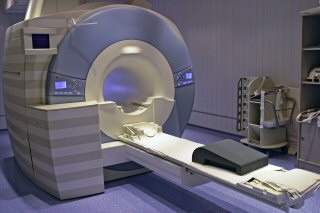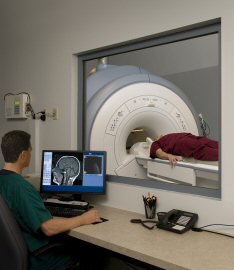Radiation Therapy Career Analysis
Introduction

Can you be worthy of trust as you help others navigate their battle with cancer?
Can you retain faith in those fragile moments when patients are faithless? Will
you be as strong as you are asking them to be? If you can answer yes to these
questions, radiation therapy could be a humbling but awe-inspiring career for
you.
What is Radiation Therapy?
 Radiation therapy is the treatment of benign and malignant disease with
radiation, and can be used as a stand-alone treatment, or in conjunction with
surgery and/or chemotherapy. During treatment, the DNA of cancerous cells are
changed with radiation, killing mutations or, at the very least, slowing their
multiplication. While it is effective in attacking cancer, it can also cause
serious damage to normally healthy tissue. Careful planning can limit and avoid
damage to healthy cells. Radiation therapy is the treatment of benign and malignant disease with
radiation, and can be used as a stand-alone treatment, or in conjunction with
surgery and/or chemotherapy. During treatment, the DNA of cancerous cells are
changed with radiation, killing mutations or, at the very least, slowing their
multiplication. While it is effective in attacking cancer, it can also cause
serious damage to normally healthy tissue. Careful planning can limit and avoid
damage to healthy cells.
Three types of radiation therapy are external beam radiation therapy,
brachytherapy and systemic radiation therapy. In external beam radiation
therapy, machines deliver radiation from outside of the body. In brachytherapy,
which is also known as internal radiation therapy, radioactive material is
placed near cancer cells within the body. Systemic radiation therapy uses
radioactive substances in the blood stream, which travel through the body and
kills cancer cells.
Beyond general radiation therapy, which addresses the health needs of any
patient, some therapists may choose to specialize in pediatric radiation
therapy. Before considering this option, it is important to recognize children
are often diagnosed with more rare cancers, and these cancers are often more
difficult to treat. It should be acknowledged that successful eradication of
cancer in children is less common than in adults. This can be attributed to less
money invested into research in children's cancers and lack of response to
current treatments.
Cancer Occurrence Predictions
 According to CA: A Cancer Journal for Clinicians, occurrences of cancer are
predicted to include 1.6 million new cases in 2013. This does not include
carcinoma in situ, meaning the only cells involved are at the point of origin,
except urinary bladder malignancies. Basal cell and squamous cell skin cancers
are also excluded. From those new occurrences, more than 580,000 are expected to
result in death. According to CA: A Cancer Journal for Clinicians, occurrences of cancer are
predicted to include 1.6 million new cases in 2013. This does not include
carcinoma in situ, meaning the only cells involved are at the point of origin,
except urinary bladder malignancies. Basal cell and squamous cell skin cancers
are also excluded. From those new occurrences, more than 580,000 are expected to
result in death.
While the treatment of cancers has led to a decrease in resulting deaths,
cancer is on the rise and can be attributed to environmental factors, hereditary
factors and the simple process of aging. Additionally, pediatric cancers have
increased in small yearly increments since 1975. Today, cancer is the second
most leading cause of death for children aged 1 to 14. As Americaís population
grows older, and childhood cancers increase, the impending diagnoses of cancers
will multiply, and radiation therapists will remain valued and necessary
contributors in the fight against cancer.
Skills Required in Becoming a Radiation Therapist
 Physically,
radiation therapists spend most days on their feet. This
includes walking, bending and lifting. They must be capable of lifting, moving
and adjusting heavy medical equipment as well as possessing the agility and
strength to aid patients onto the treatment table. Physically,
radiation therapists spend most days on their feet. This
includes walking, bending and lifting. They must be capable of lifting, moving
and adjusting heavy medical equipment as well as possessing the agility and
strength to aid patients onto the treatment table.
Emotionally and mentally, radiation therapists are treating patients who
often are facing their own mortality. Radiation therapists must be empathetic to
their patients, and their patientís family as they face life and death
questions, fears and even anger. A radiation therapist will be responsible for
monitoring the physical and emotional well being of each patient, and capable of
making referrals and recommendations for counseling and other therapies that can
provide encouragement through treatment. Because this type of work can be taxing
on the radiation therapistís own emotional health, it is imperative the
therapist be able to recognize his or her own limitations and take necessary
steps to maintain a healthy perspective.
Finally, technical skills required include math and science proficiency,
strong verbal and written skills, active listening, critical thinking, the
ability to operate and control equipment and medical language understanding. A
radiation therapist must be detail oriented and have strong interpersonal
communication skills.
Pros and Cons
 Working in radiation therapy can be very fulfilling. Therapists work directly
with patients while participating in life-saving therapies and are a vital
component to the oncology team. A therapist will be working in a fast-paced
environment that allows access to cutting-edge technology. Unlike many other
positions in the medical field, radiation therapists primarily work set hours
throughout the week. Working in radiation therapy can be very fulfilling. Therapists work directly
with patients while participating in life-saving therapies and are a vital
component to the oncology team. A therapist will be working in a fast-paced
environment that allows access to cutting-edge technology. Unlike many other
positions in the medical field, radiation therapists primarily work set hours
throughout the week.
The greatest challenges facing a radiation therapist are keeping up with
evolving technology and therapies and the emotional impact and stress that comes
with treating patients who hang in the balance of life and death. Additionally,
this field is highly competitive because it is a small specialty in relation to
other occupations within the medical field.
Radiation Therapist Job Outlook
According to U.S. Bureau of Labor Statistics, employment for radiation
therapists will increase by 20% from 2010-2020, more than most other
occupations.
The median annual wage of radiation therapists, according to U.S. Bureau of
Labor Statics, is $74,980. This means half of all radiation therapists earned
less, while half earned more. The bottom 10 percent earned $50,950 or less, and
the top 10 percent earned $110,550 or more.
How to Become a Radiation Therapist
Candidates may qualify with a 12-month certificate program, but obtaining an
associateís or bachelorís degree in radiation therapy will increase chances of
employment exponentially.
Before choosing a program, refer to the Joint Review Committee on Education
in Radiologic Technology, which lists accredited programs like the one available
at
gmercyu.edu that will assure a strong foundation. In addition, statistics
are provided for each school showing program completion rates, credential
examination pass rates and employment rates. These items will prove to be
valuable tools while selecting a school.
Once the educational framework is completed, most states require licensure.
Radiation therapists can become certified through the American Registry of
Radiologic Technologists (ARRT). Certification can only be achieved upon the
completion of an accredited radiation therapy program, adherence to ARRT ethical
standards and passing of the ARRT certification exam. Certification must be
renewed every two years.
Additional Occupational Opportunities
Once a successful career has been established in radiation therapy, other
opportunities become available such as research, management and teaching. In
some cases, radiation therapists can progress into a medical dosimetry position
through work related training.
A medical dosimetrist designs and tests potential treatment plans through
computer imaging, predicting obstacles and fine-tuning measurements so that
radiation treatment can be delivered to the patient in the safest way possible.
They are the middle-men, taking the prescription from the oncologist and
creating a course of treatment that is physically executed by the radiation
therapist. Radiation therapists are good candidates for medical dosimetry
because they have hands on experience and fully understand the practical
limitations of body angles.
In addition to on-the-job training, a radiation therapist interested in
medical dosimetry can obtain their masterís degree in medical dosimetry with an
additional two years of education.
Conclusion
Radiation therapy is a challenging career, but with the right tools and an
innate want to help others, can be fulfilling work for many years to come.
Personal and professional gratification is limitless in this field where
science, medicine, compassion and triumph meet.
Jobs
Top Lists:
Top 15 Most Physically Demanding Jobs in the World
Top 15 Quick & Easy Money Making Schemes that Work
15 Unusual Medical Professions
15 Unusual Ways Used To Source For Jobs
15 of the Most Underappreciated Jobs
Informational:
Time Management Tips for Freelancers
How to Successfully Work From Home
How to Provide Excellent Customer Support
How to Ace Your Job Interview
How to Successfully Work From Home
Radiation Therapy Career Analysis
Tips for Building Your Freelance Writing Portfolio
Tips for Freelancers to Avoid Burnout
What Does Freelance Writing Mean
Where to Find Legitimate Data Entry Jobs Online
How to Cope with a Pay Cut
Online Jobs from Home for Stay at Home Moms
What are the Benefits of Work from Home Jobs?
Can a Freelance Writer Make a Living Writing Online
Trends in the Job Market and the Growth of the Service Sector |